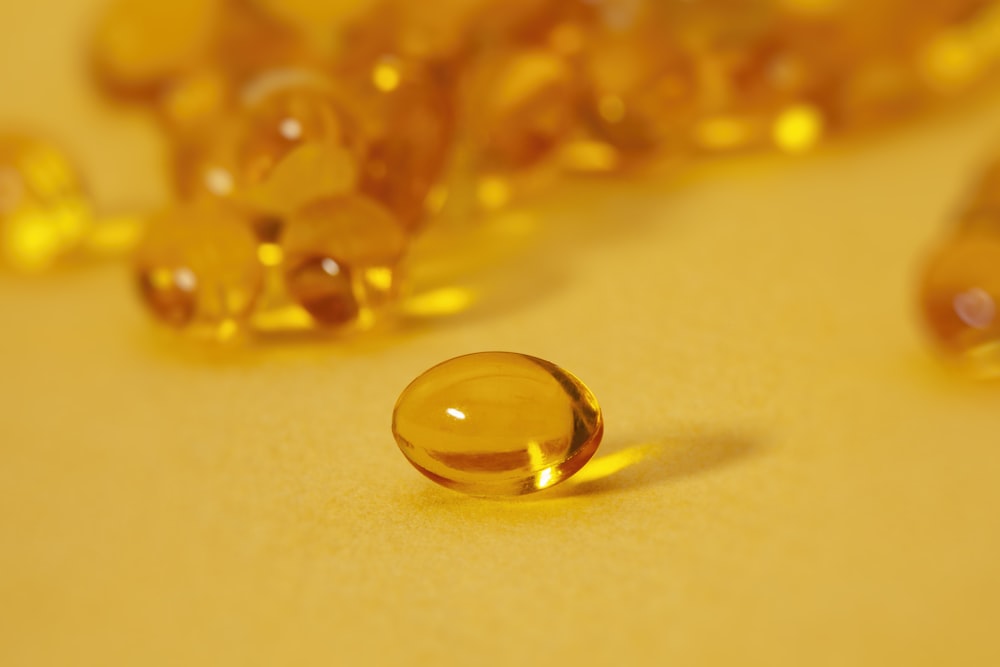Top 7 Supplements for Men

The world of nutritional supplements is vast. It’s one that takes a lot of research if you want to know what’s essential and what’s not. And if you’re a health-minded guy wondering what in the world you should be taking to supplement your overall well being, you’re certainly not alone. Most women can talk to their gal pals about what works for them and what doesn’t. But, men are a little more alone on the subject. Which is why I want to give all the guys out there some tried and true info as to what supplements the modern male should have in his bathroom medicine cabinet.
A go-to multivitamin

Just like the gals, men need a daily multivitamin as well, especially as they get older. We all need these daily boosters of good health because vitamins are part and parcel of all the functions of the body. And most men simply don’t get the vitamins they need from their diet. And when nutritionally deprived, the body can be more prone to disease. This is where a good multivitamin comes into play. And if you’re not convinced, check out this 2012 study, which makes a pretty compelling case for the need of a daily multivitamin and the prevention of cancer
All men need to make sure they’re getting the following vitamins and minerals from their daily multi:
-
Vitamin C
Vitamin C is a potent immune booster. It plays a role in various functions of the body, including collagen production.
-
Vitamin A
Vitamin A is necessary for eye health. It also plays a role in boosting immune function.
-
Vitamin E
Adequate amounts of vitamin E protect your cells from the damage that happens to them on a daily basis.
-
B vitamins
All the B vitamins are essential in order to produce red blood cells. They’re also necessary for energy metabolism.
-
Selenium
Selenium is beneficial for its role in cell protection.
-
Vitamin D
Vitamin D is absolutely necessary for the immune system. It also helps prevent serious diseases from taking hold.
-
Vitamin K
Vitamin K is essential for dental health. It’s also a necessary nutrient for healthy teeth and bones. What’s more, vitamin K helps prevent cardiovascular disease.
-
Zinc
Zinc is a potent immune booster. It also promotes healthy testosterone levels.
-
Calcium and magnesium
You need these nutrients together, working in unison, for healthy and strong bones.
-
Iron
As you might guess, men don’t need to supplement with iron the way women do. Women lose large amounts of iron during monthly menstruation, whereas men do not. However, iron should still be found in their multivitamin, just in smaller amounts.
Omega-3 fatty acids

Both men and women need to take a high quality omega-3 fatty acid supplement if they’re not eating adequate amounts of fatty fish like salmon and sardines on a regular basis. Taking good omega-3 supplements on a regular basis is a great way to keep your heart healthy. So, for men with heart disease in their family, or for those who want to prevent cardiovascular issues, an omega-3 supplement should be on their supplement short list.
For those of you guys who tend to feel really beat after a good, hard workout, an omega-3 fatty acid supplement is something to consider. It’s especially helpful for those of you endurance athletes out there who naturally undergo more oxidative stress than your less active peers. Omega-3 fatty acids tend to do a very good job of combating this kind of oxidative stress, as well as reducing inflammation in the process.
If you’re really opposed to taking an omega 3 fatty acid supplement, you should start eating more food sources that contain these essential fatty acids. Try adding more salmon to your diet. Sardines or any kind of fatty fish, for that matter, are a good bet. If you’re a vegetarian or vegan, chia seeds provide ample amounts of omega-3 fatty acids, as does a bottle of cod liver oil. Omega-3’s will also help maintain cognitive health as you age. They’re even known to battle depression. When the winter doldrums set in, I always make sure I eat more fatty fish, or take a good omega-3 supplement.
Take 1,000 mg of omega-3’s after your workout, or 2,000 mg if you’re a super training endurance athlete.
Best food sources of omega-3 fatty acids: salmon, sardines, chia seeds, flaxseeds, tuna, herring, mackerel.
Probiotics
Probiotics are highly beneficial for both men and women because they’re really effective at supporting a healthy immune system. And they’re incredibly crucial for digestive health. If you suffer from long bouts of diarrhea, for example, a probiotic can nip that issue in the bud. Some studies have even shown probiotics to prevent coronary heart disease.
And for those of you looking to boost your workout routine, and up your protein intake, consider taking a good probiotic supplement along with a high-quality protein powder. Probiotics actually help with the body’s absorption of protein, and help reduce inflammation by supporting the growth of beneficial gut bacteria. And because of something known as the gut-brain axis, taking regular doses of good probiotics may even boost your mood and stave off depression. With winter upon us, taking fish oil supplements, along with probiotics is a really smart idea if you suffer from seasonal affective disorder (SAD).
To help your probiotic do its best work, try not to succumb to the increased eating of sweets and breads, which so often occurs during the holiday season. These foods can make you grumpy and tired. They may even sabotage the benefits of the supplements you’re treating yourself to. Always get a high-quality probiotic supplement. Shop around. As with anything, you typically get what you pay for.
Best food sources for digestive health: kefir, yogurt, sauerkraut, fermented veggies, kimchi, raw cheeses.
Magnesium
Do you have trouble sleeping at night? If so, you’re definitely not alone. Many men do. And it might not just be linked to stress. You may actually be deficient in magnesium. You can think of magnesium as the sleep mineral. If you’re a physically active guy, you need ample amounts of magnesium circulating throughout your body in order for all the cells to do what they do best. Magnesium is a lot like vitamin D when it comes to its essential role in cellular functioning. Therefore, if you suspect you don’t have enough in your body, taking a supplement is a safe bet.
Signs that you may be low in magnesium typically have to do with sleep issues. If you don’t feel you’re getting the truly restorative sleep you need, you may be low in this essential mineral. If you’re not recovering the way you’d like to after hard workouts, this is also a sign you need to supplement with magnesium. Your muscles really need magnesium. So do your bones, and even your brain.
If you’re taking magnesium to help get your sleep back on track, take your magnesium supplement about an hour before bedtime. You can take it in the form of a capsule, or a powder that you add to water. If you’re adding it to water, be sure to take it a full hour before bedtime to ensure you’re not up in the middle of the night going to the bathroom. In pill form, you’ll need approximately 400 mg of magnesium.
Best food sources for magnesium: almonds, spinach, pumpkin seeds, cashews, dark chocolate, Brazil nuts, avocados.
Vitamin D
While a men’s multivitamin may contain vitamin D, it typically doesn’t contain the amount needed to make it through the cold, dark winter months. Taking a vitamin D supplement is a really good idea, for both men and women. Both sexes will benefit from an immune function boost. And both will reduce their risk for bone fractures as they get older. Vitamin D is a crucial vitamin that most of us lack. Sure, we can get it by being out in the sun. But, when the sun hides behind the clouds for months at a time, a vitamin D supplement is in order.
Another fantastic boon for vitamin D is its ability to boost your mood. Many men find that taking vitamin D during the dark, cold winter months, is an effective way to stave off the depression that often accompanies this time of year. You’re probably aware how much better you feel in the spring, summer, and autumn months. And once the dead of winter (and even fall) sets in, your mood naturally goes down. This is because you’re not getting enough vitamin D from the sun. For this reason, we need to get our vitamin D from a supplement.
How much should you take? The answer to this varies from one expert to the next. I like to take 1,000 mg daily during the fall and winter. I typically don’t take any during the summer months when I spend hours outdoors, basking in the sun. Some health experts take more than 1,000 mg a day. And many take as much as 5,000 mg each day. I say, 1000-2,000 mg is sufficient. But, do your own research. You know your body better than anybody, and should listen to its innate wisdom.
Best food sources of vitamin D: egg yolks, cheese, vitamin D fortified foods like orange juice, soy milk, cereal and oatmeal, and cow’s milk; beef liver, salmon, sardines, herring, cod liver oil, egg yolks, tuna, mushrooms.
Vitamin C
Like vitamin D, you’ll likely get some vitamin C from a multivitamin. But, you’re not going to get as much as you truly need. To give the body the immune boost from vitamin C it desires, you need to be taking around 1,000 mg daily. Taking this amount of vitamin C each day is a really good idea during flu season, when the cold weather naturally lowers immunity. What’s more, vitamin C helps protect your cells against free radical damage with its antioxidant powers. This means your cells are going to ward off cancer better than their vitamin C deprived counterparts.
Best vitamin C food sources: acerola cherries, plums, citrus fruits, chili peppers, sweet yellow peppers, blackcurrants, parsley, thyme, kale, kiwis, broccoli, Brussels sprouts, papayas, strawberries.
Greens supplement
Taking a greens supplement in the form of a green powder in your morning smoothie is an excellent way to ensure you’re getting all the nutrients you need to thrive. If you have a super busy schedule, a nutrient-dense greens supplement is a no-brainer. When shopping for these types of supplements, look for those that contain broccoli, kale, beetroot, spinach, and the like.

Taking a greens supplement in your morning smoothie is going to boost your nutrient intake immensely, and you might not even need to take a multivitamin if you take a greens supplement. In fact, you may choose to alternate between the two. And if your greens supplement contains loads of seaweed, like chlorella and spirulina, you may also wind up foregoing your omega-3 fatty acid supplement, as these seaweeds contain omega-3 fatty acids. Or, like the multivitamin, alternate between the two. And, last but not least, see how much vitamin C is in your greens supplement. If there’s quite a bit, you may not need to supplement with Vitamin C. Or, take a greens supplement one morning, and a vitamin C supplement the next.
When it comes to taking any kind of supplement, buy the kinds that you’re actually going to take. Easy-to-swallow soft gels are always a good bet. So are powders that mix well in liquids. You’re not going to be terribly motivated to swallow gigantic horse pills, especially on a daily basis. And if a gummy multivitamin is the only way you’re apt to take one, do just that. Whatever works best for you is the name of the game here.




